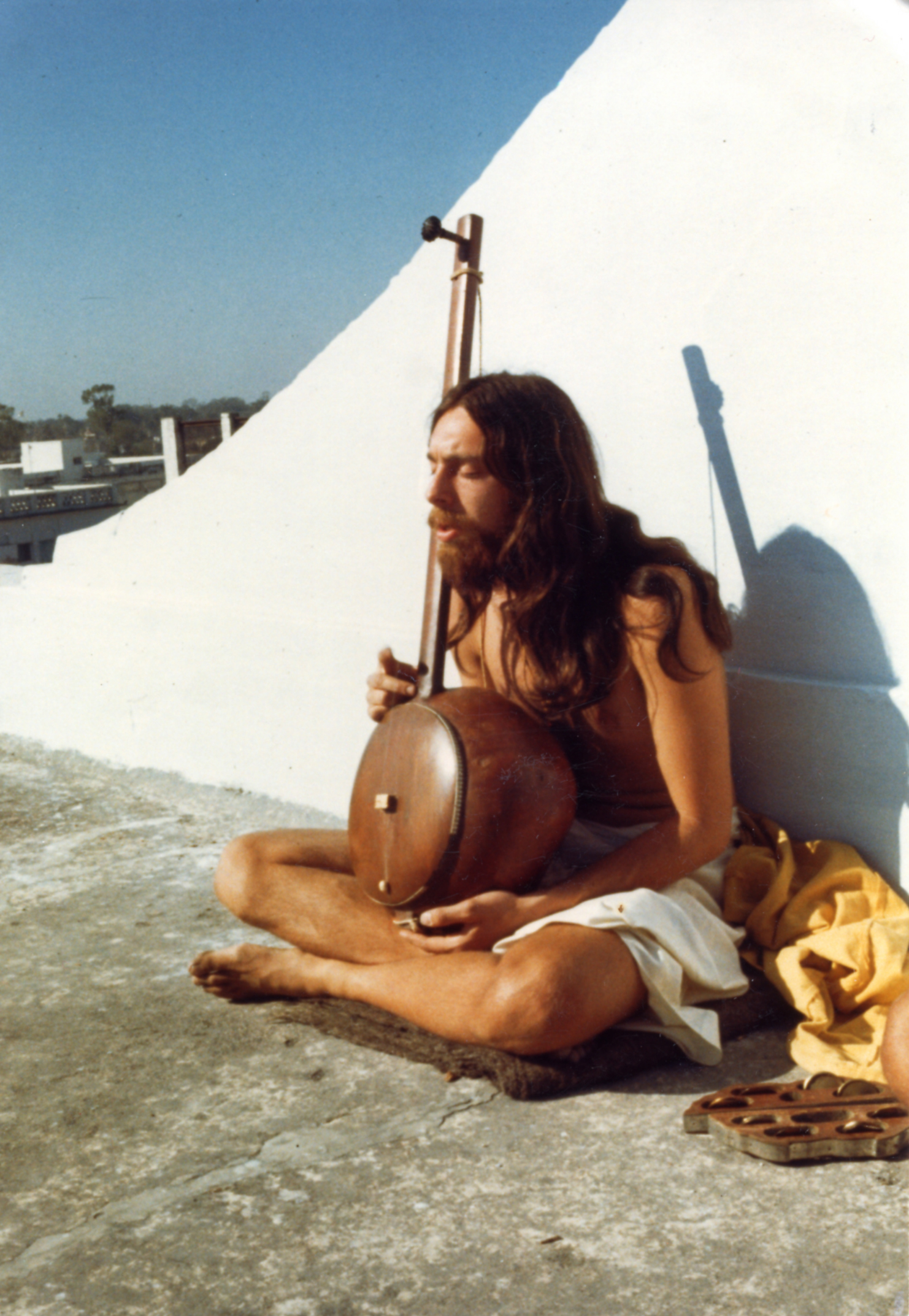One Track Heart: The Story of Krishna Das
Runs Fri., June 7–Thurs., June 13 at Northwest Film Forum. Not rated. 72 minutes.
It’s easy to mock Jeff Kagel, a failed rock singer, spiritual seeker, and ex-cokehead who now performs chants for the adoring yoga crowd under the stage name Krishna Das. (He last played here at the Moore in 2010.) Like some baby boomers, Kagel dropped acid, dropped out, found a guru (Ram Dass, aka Richard Alpert, an LSD-embracing Harvard colleague of Timothy Leary), went to India to study at an ashram, then came back to the U.S. and wondered what it all meant. Jeremy Frindel’s too-admiring documentary isn’t out to mock Kagel, of course, but his veneration smothers what ought to be a more interesting, paradigmatic tale of ’60s spirituality.
Kagel, born in 1947, grew up Jewish on Long Island. Did he sing in the temple? Frindel doesn’t tell us. Later, performing with various rock bands, Kagel was supposedly invited to join Blue Oyster Cult—an assertion that no one in that group, or outside the doc’s very narrow sourcing, can substantiate. Today a gray-haired, sober, sympathetic presence, Kagel is allowed to present his personal history selectively and self-servingly. Frindel doesn’t question him, and his timeline of events is more than a little vague. (Kagel’s second act began in the mid-’90s with the album One Track Heart.) But nothing’s more American than self-invention and telling tall tales. If Kagel wants to call himself Krishna Das, fine. Frindel, however, is too caught up in the man’s aura to place him in any social or religious context.
Like the recent documentary The Source Family, about a silly yet benign California cult, One Track Heart is rooted in America’s second great spiritual awakening. Young Jews and Christians of the postwar generation suddenly started flocking to alternative forms of spirituality—Hindu, TM, Buddhist, mix-and-match, whatever. The Beatles weren’t the first to go to India (or to drop LSD), and Kagel is part of the same generational movement, that yearning to worship differently than one’s parents. He tangentially touches on that truth, saying about his ego, “Even when I think I’m a wave, I’m just ocean.” Frindel fails to follow that thread.
Kagel has performed with Sting, and Rick Rubin—seen here—produced one of his albums. Playing his harmonium and singing droning, Westernized kirtans, he now seems a happy, humble artist, content to play small rooms at premium prices (yoga class included). How many 66-year-old former rock stars can say the same?
bmiller@seattleweekly.com








